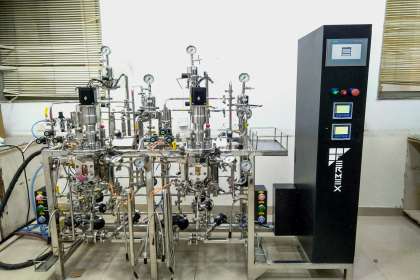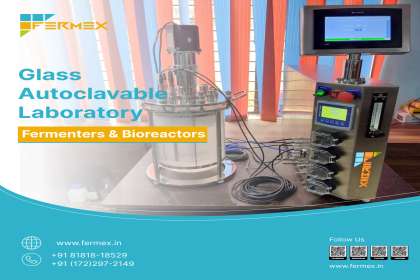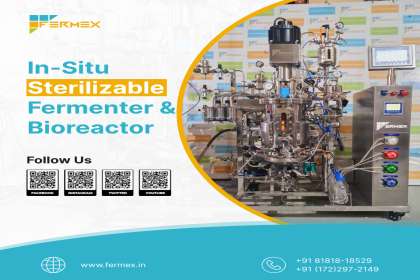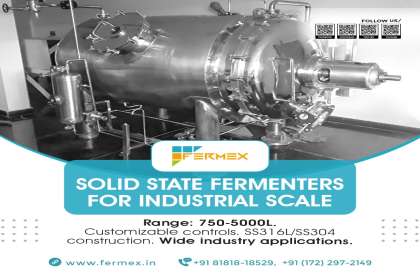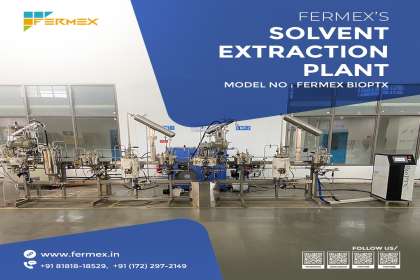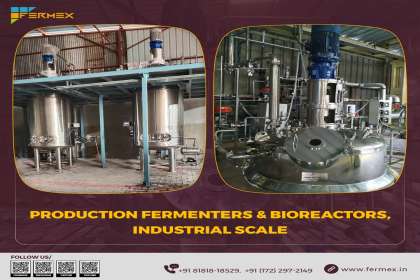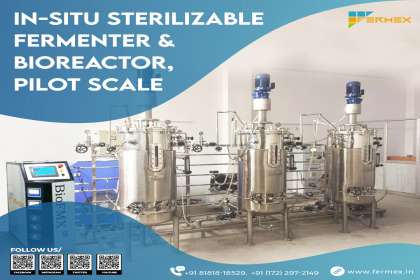Innovating Wine and Alcohol Production: The Role of Fermenters and Bioreactors

Use Fermenters in Production of Wine and Alcohol
Fermenters are crucial in wine and alcohol production for the fermentation and maturation processes. They provide controlled environments for yeast or other microorganisms to convert sugars into alcohol.
- Fermenters maintain optimal temperature, pH, and nutrient conditions during fermentation. They enable precise temperature control, allowing winemakers and distillers to achieve desired flavors and aromas.
- Additionally, they facilitate the management of fermentation parameters, such as oxygen levels and agitation, to ensure consistent and efficient fermentation. Fermenters play a vital role in producing high-quality wines and alcohols by providing the optimal conditions for yeast growth and alcohol production.
Key Stages involved in Process of making Wine and Alcohol
The process of making wine and alcohol involves several key stages. Here are the common stages involved in the production of both wine and alcohol:
- Harvesting: The process begins with the careful harvesting of the raw materials, such as grapes for wine production or grains for alcohol production. Grapes are typically harvested when they have reached the desired level of ripeness, while grains are harvested and prepared for further processing.
- Crushing or Mashing: In wine production, the harvested grapes are crushed to extract the juice. In alcohol production, grains are mashed to convert starches into fermentable sugars. This stage breaks down the raw material and prepares it for fermentation.
- Fermentation: The crushed grapes or mashed grains are transferred to fermenters or bioreactors, where yeast or other microorganisms are added. During fermentation, the sugars in the raw material are converted into alcohol and carbon dioxide. This stage can take several days to weeks, depending on the desired outcome and type of product.
- Clarification: After fermentation, the wine or alcohol undergoes a clarification process. Sediments, yeast, and other solids are removed through methods such as filtration or settling. This process improves the clarity and quality of the final product.
- Maturation/ Aging: Wine and some types of alcohol, such as whiskey or brandy, often go through a maturation or aging process. They are stored in barrels, tanks, or bottles for a specific period, allowing them to develop desirable flavors, aromas, and characteristics. This stage can last for months or even years, depending on the product.
- Filtration and Stabilization:Before bottling, both wine and alcohol may undergo filtration to remove any remaining solids or impurities. Stabilization techniques, such as cold stabilization or fining agents, may also be employed to improve the stability and shelf life of the product.
- Bottling and Packaging:The final stage involves the bottling and packaging of the wine or alcohol. The product is filled into bottles or containers, sealed, labeled, and prepared for distribution and sale.


Fermex Solutions LLP Manufactures Fermenters that can be used for these Production
- Glass Autoclavable Fermenter (Lab scale)
- In situ Solid State Fermenter (Industrial scale)
- In situ Solid State Fermenter (Pilot scale)
- In situ Submerged Fermenter (Industrial scale)
- In situ Submerged Fermenter (Pilot scale)
Benefits of Fermenters in the Production of Wine and Alcohol:
Fermenters play a crucial role in the production of wine and alcohol, providing numerous benefits throughout the process. Here are some key advantages of using fermenters:
- Controlled Fermentation:Fermenters allow for precise control over the fermentation process, including temperature, pH, and nutrient levels. This control ensures consistent and optimal conditions for yeast or other microorganisms to carry out fermentation, leading to better quality and more predictable results.
- Efficient Extraction: Fermenters facilitate the efficient extraction of sugars, flavors, and aromas from the raw materials. In wine production, fermenters enable the extraction of grape juice for fermentation, resulting in the desired characteristics of the wine. In alcohol production, fermenters aid in the breakdown of grains or other feedstock to obtain fermentable sugars.
- Sanitary Environment: Fermenters provide a sanitary environment that minimizes the risk of contamination during fermentation. Their closed systems and sterilization protocols prevent the intrusion of unwanted microorganisms, helping to maintain the purity and quality of the final product.
- Scalability: Fermenters come in various sizes and capacities, allowing for scalability in wine and alcohol production. They can be designed to accommodate different production volumes, from small-scale artisanal operations to large industrial facilities.
- Process Monitoring:Fermenters often include monitoring systems that allow real-time tracking of fermentation parameters. This enables operators to closely monitor the progress of fermentation, make adjustments if needed, and ensure optimal fermentation performance.
- Flexibility in Fermentation Techniques: Fermenters support various fermentation techniques, including traditional fermentation, controlled fermentation, or specific processes like malolactic fermentation for wine production. They provide the flexibility to implement different techniques and achieve specific flavor profiles or desired outcomes.
- Time and Cost Efficiency:Fermenters facilitate efficient and consistent fermentation, reducing the overall production time and costs. By providing optimal conditions for fermentation, they contribute to higher yields, improved productivity, and reduced risk of product loss or spoilage.
- Product Consistency: Fermenters help maintain consistency in wine and alcohol production by providing controlled environments for fermentation. This consistency ensures that each batch or vintage of the product exhibits similar qualities, allowing for brand identity and customer expectations to be met consistently.









